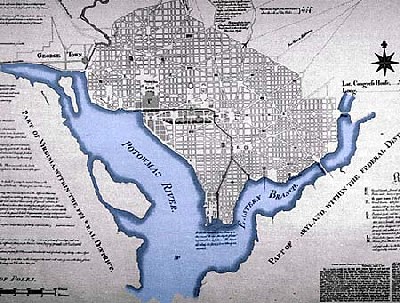Suburbanism
Suburbanism is something I don't care too much about except in terms of mobility, because I am focused on center cities. I mean I care, but except in the context of transportation, you're not going to see me say too much about it. The center cities have so much that they ought to be doing that I'm busy enough...
But, today's Post has a piece, "Montgomery legislators to vote on controversial development proposal," about the controversy of Montgomery County's proposed new zoning code and it happens that at the Takoma Park Street Festival last Sunday (too bad about the ran), I ran into a friend-colleague from Takoma Park, and then a County Councilman happened by and the three of us discussed the issue at great length (long enough that given what I wrote in paragraph one, I left before they finished), partly in response to the fact that the City of Takoma Park has some significant reservations about certain of the provisions, because the City doesn't have control of the zoning within the city--for the most part the process is run by the County, with limited opportunities for City input.
Of course, for the most part I am supportive of the idea to change the zoning method in Montgomery County, to favor mixed use and intensification, especially around transit.
What is pathbreaking about Montgomery County planning-wise is the Growth Policy, which promotes the idea that the County needs to change its land use and development paradigm to better reflect and reposition around changing circumstances and trends, such as the fact that the dominant single family detached housing type that typifies Montgomery County subdivisions no longer appeals to significant segments of the house-buying public.
A paper in Places Journal, "Beyond Foreclosure: The Future of Suburban Housing" captures this dynamic, even though Montgomery County is one of the most well-off communities in the U.S., and it doesn't have the abandoned subdivisions that are typical in the Carolinas, Florida, Arizona, etc. From the article:
But the foreclosure crisis has made it painfully clear that such culturally accepted and legally sanctioned resistance to change might be as much a liability as a benefit. We're at a pivotal moment, when thousands of neighborhoods will need to adapt in order to accommodate current realities and correct deficiencies in the housing market. Successful environments are in fact always adapting. Can we imagine a city in which a parking lot could never be used for anything but parking, or where individual properties could not be bundled for redevelopment? Agility of use and occupation are essential to ongoing vitality. Yet somehow we've come to expect our suburbs to remain frozen in time — dream time — and as a result we've consigned them to premature obsolescence. One of the sad and critical ironies of today's housing market is that more and more Americans are threatened with homelessness even as the housing market struggles with excess inventory, in large part because regulations prevent the kind of modifications that would better meet contemporary needs.
Nationally, you have interesting work such as the Sprawl Repair and Retrofit movement, and Montgomery County has the advantage of decent rail transit with 12 red line subway stations + one on the border of the city and the county and if the Purple Line light rail is built, that will add mobility and 6 new transit stations as well, plus the transformative redevelopment project of the Greater White Flint area, which I think is a national-best practice example of "urbanizing" suburbia, and refocusing mobility away--somewhat at least--from the car, not to mention the revitalization of Silver Spring, plans to do so at Wheaton, and the ongoing intensification of Bethesda, especially in the Bethesda Row area.
But the conversation with the Councilmember continues to make very clear to me that plenty of people don't believe that the basic principles of suburban development and design need to be changed.
So from the standpoint of center city revitalization we're lucky that there is resistance to change in the suburbs, because the more we screw up (and we screw up a lot, at least in DC), at least our competitors aren't as competitive as they could be, plus we are blessed with the right spatial conditions (given to us by L'Enfant in his plan for the core of the city) which most suburban jurisdictions lack.

Labels: suburban revitalization, transportation planning, urban design/placemaking, urban revitalization



0 Comments:
Post a Comment
<< Home